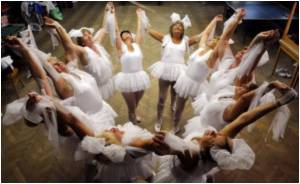
More than 500 artists will be featured, including celebrated tabla player Zakir Hussain, who will perform a premiere work with the National Symphony Orchestra, and violinist Lakshminarayana Subramaniam.
The festival will showcase Indian classical dance forms, such as odissi and bharatanatyam, but also include modern choreographer Tanusree Shankar and contemporary musicians like British-Indian rapper Panjabi MC.
"I want to give our audiences varying windows upon which to gaze at the culture of the country so that people can enter many, many doors," said Alicia Adams, the Kennedy Center's vice president for international programming and curator of the festival.
Unsurprisingly, the festival will also touch on Bollywood, although Adams said she did not want the wildly popular film industry to overshadow other art forms.
"I didn't want to focus on that," she said, but added: "It's the most robust film industry in the world, so you wouldn't want to not include it."
Advertisement
The festival also has a literary component, with appearances by novelist Salman Rushdie and Delhi chronicler William Dalrymple, and will feature cuisine by chefs flown in from India.
Advertisement
Meera Shankar, the Indian ambassador to Washington, voiced hope that the festival would bolster the nations' relationship, which has improved markedly since the 1990s.
"On the one hand, we have a strengthening strategic partnership between India and the United States, growing business links and political consultations. But the very solid part of this relationship is that it is people-centric," she said.
Source-AFP









